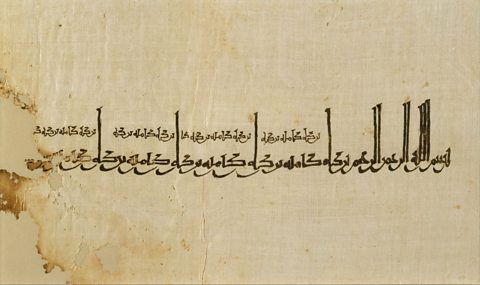When was the early Islamic civilisation?
The early Islamic period started in around AD600. There are different views on when it ended. Some historians believe it ended in the 13th century when cities like Baghdad were destroyed.
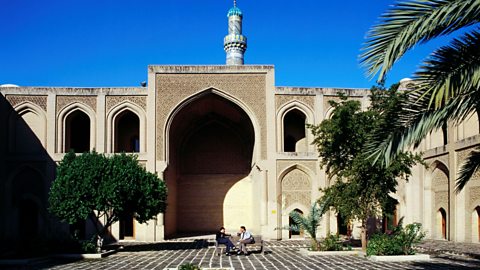
Where was the early Islamic civilisation?
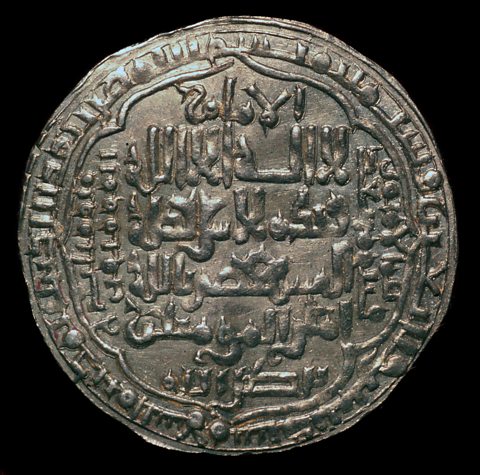
The early Islamic civilisation wasn't a single country. It was made up of areas in the world that practised Islam. Religion played an important role in society.
The Islamic empire spread from the Middle East, west to North Africa and Spain and east to India.
Important early Islamic cities were Baghdad (in modern-day Iraq), CĂłrdoba (in Spain) and Cairo (in Egypt).

How did the early Islamic civilisation begin?
- In Mecca in AD610 a man called Muhammad began to experience what he believed were messages from God.
- Those who believed in these messages became known as Muslims.
- The religion they followed was called Islam.
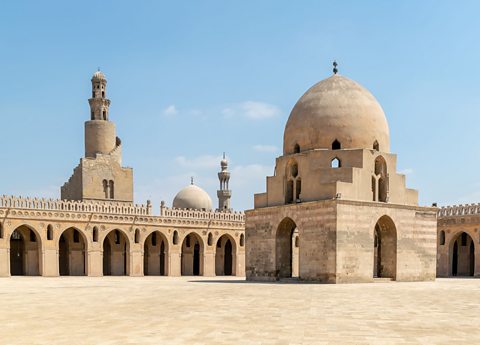
Muhammad later moved to the city of Medina and built a mosque (Islamic place of worship). The new Islamic community began here. He later returned to Mecca and many more people became Muslims. Many rulers in the Middle East began to accept Islam and Muhammad as a leader.
After Muhammad's death, leaders called caliphs ruled the Islamic Empire and it continued to grow.
Who was the caliph?
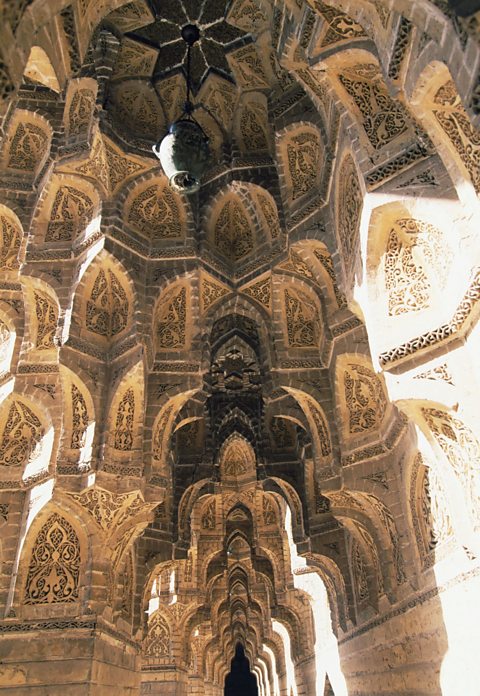
The caliphates (Islamic states) were governed by a caliph. They were the successors to Muhammad.
The first major caliphate was the Rashidun Caliphate, followed by the Umayyad Caliphate and the Abbasid Caliphate.
The Islamic Golden age began during the Abbasid caliphate which was centred around the city of Baghdad.
In 1258, the Mongol armies from the east destroyed Baghdad and ended Abbasid rule.
Activity: Quiz – Introduction to early Islamic civilisation
Bitesize Primary games. gameBitesize Primary games
Play fun and educational primary games in science, maths, English, history, geography, art, computing and modern languages.

More on Islamic civilisation
Find out more by working through a topic
- count3 of 10
